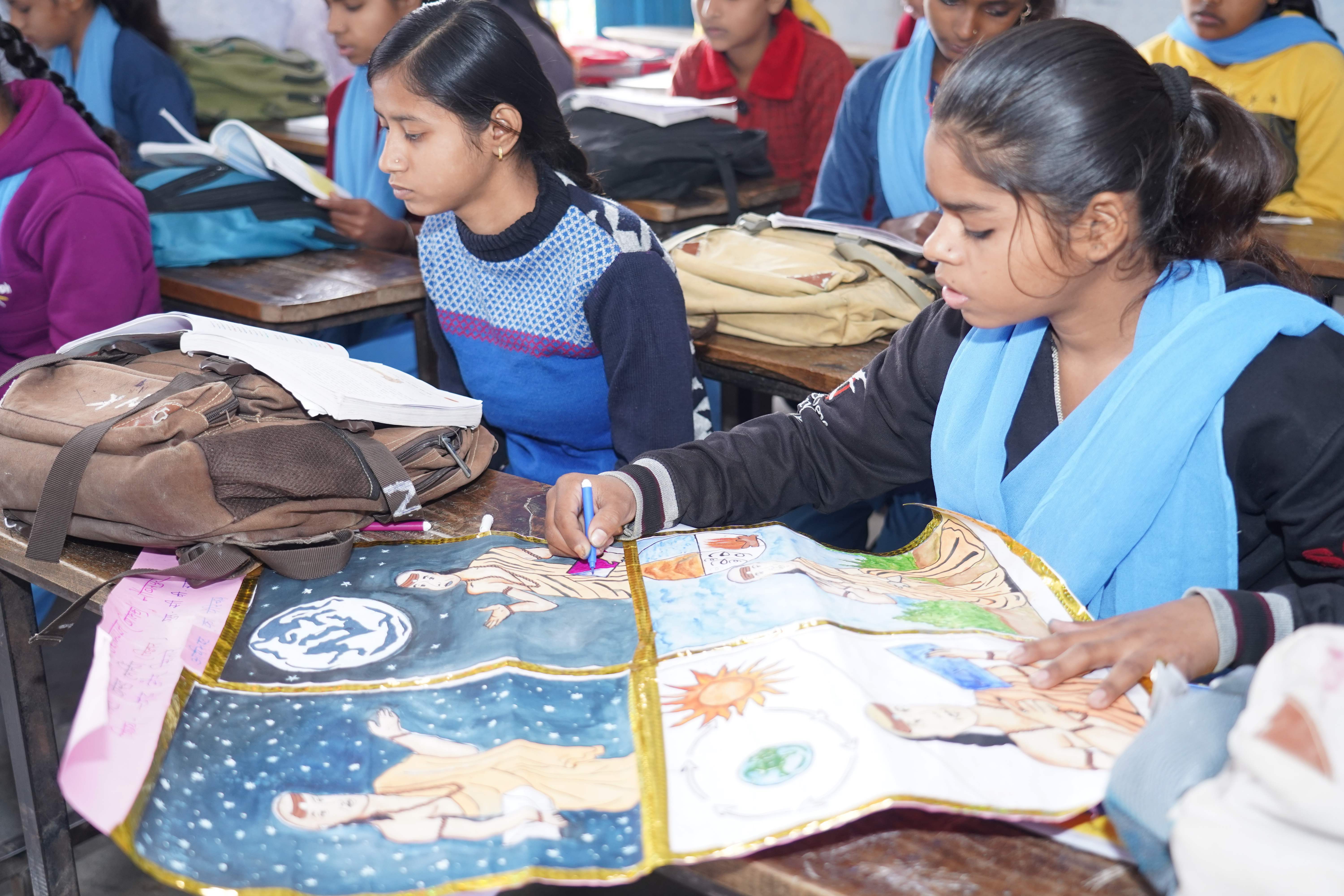Context
India faces a significant education crisis, with millions of children lacking access to quality education and struggling to achieve grade-appropriate learning outcomes. Despite high enrollment rates in primary schools, foundational literacy and numeracy skills remain low, particularly among children from disadvantaged backgrounds. Addressing this crisis requires a multifaceted approach that combines direct classroom interventions, supplementary educational support, and capacity-building for educators. The Quality Education India Development Impact Bond (QEI DIB) was launched to tackle these challenges by funding high-performing service providers to deliver targeted interventions aimed at improving learning outcomes for over 200,000 primary school-aged children across the country over four years.
The initiative brings together four experienced service providers—KEF, GyanShala, SARD, and Pratham Infotech Foundation—each implementing context-specific interventions designed to address the diverse educational needs of children and teachers. These interventions include direct classroom teaching, remedial learning programs, and teacher and school leader training, forming a comprehensive strategy to improve the quality of education in India.
Solution
The QEI DIB leverages the expertise of four service providers to deliver a blend of direct and indirect education models, ensuring a holistic approach to improving primary education. The solution focuses on three core intervention types:
-
Direct Classroom Teaching: This model involves directly operating classrooms where service providers take charge of delivering high-quality education, ensuring that children receive personalized instruction tailored to their learning levels. This intervention is designed to improve foundational literacy and numeracy skills by focusing on grade-appropriate learning outcomes.
-
Supplementary and Remedial Programs: Service providers implement supplementary learning programs to support children who are lagging behind in their studies. These programs, delivered outside regular school hours, offer targeted remedial support to help students catch up and achieve grade-level competencies.
-
Teacher and School Leader Training: Recognizing the critical role of educators in improving learning outcomes, the QEI DIB includes an indirect intervention model focused on building the capacity of teachers and school leaders. Through professional development and leadership training, this component aims to improve the quality of teaching and create a more effective learning environment for students.
The initiative measures success through three key outcome metrics, each comparing the learning gains of intervention groups with those of a control group. These metrics assess improvements in learning outcomes across direct classroom interventions, remedial programs, and teacher/principal training, using standard deviations from the mean to quantify the impact of each intervention.
Impact
The QEI DIB is expected to generate significant improvements in learning outcomes for over 200,000 primary school-aged children, contributing to a broader effort to enhance the quality of primary education in India. By adopting a multi-pronged approach that includes both direct student support and capacity-building for educators, the initiative addresses the root causes of poor educational performance and creates a sustainable model for long-term educational improvement.
In the short term, the direct classroom interventions and remedial programs are anticipated to enhance foundational literacy and numeracy skills, enabling more students to achieve grade-appropriate learning outcomes. Over time, the professional development of teachers and school leaders is expected to have a compounding effect, improving instructional quality across schools and benefiting future cohorts of students.
Furthermore, the use of a Development Impact Bond (DIB) model ensures accountability and efficiency, as funding is tied to measurable results. This results-driven approach not only maximizes the impact of investments but also provides valuable evidence for scaling successful interventions. Ultimately, the QEI DIB has the potential to serve as a replicable model for addressing educational crises in other regions, driving systemic improvements in learning outcomes and contributing to greater educational equity across India.













